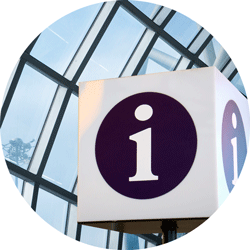AI-generated music
Another form of generative artificial intelligence (AI) that has been frequenting the headlines is AI-generated music. A well-known example being the viral Drake and The Weeknd song titled “Heart on My Sleeve” which has now been pulled off Apple Music and Spotify. This AI-generated song produced remarkably realistic renditions of Drake and The Weeknd’s voices.
A further example of AI-generated music comes in the form of AI song covers where AI-generated versions of artist’s voices are used to cover a song. Examples of these AI cover songs which are flooding social media include an AI-generated Rihanna cover of Beyoncé’s “Cuff It” and even an AI-generated Michael Jackson cover of Survivor’s “Eye of the Tiger”. These song covers are made possible by AI voice changing technologies. While it is intriguing to see your favourite artist covering songs you wished they had, it is important to note that these songs are not real and were produced without consent from original artists.
Perception and ethical concerns
These developments prompted Universal Music Group (UMG), which controls about a third of the global music market, to write to streaming platforms like Spotify and Apple Music, requesting that they prevent artificial intelligence companies from accessing their libraries to prevent them from scraping its artists’ music to train AI software. UMG has also successfully taken down YouTube videos which featured AI-generated vocals of Eminem rapping about cats.
One of the criticisms on AI-generated music is that it takes away the experience that the artists are trying to convey in their music. Music may be created from life experiences and emotions which cannot be replicated by an AI software. Human Artistry Campaign, a coalition formed to ensure AI never replaces human creators stated that “There are fundamental elements of our culture that are uniquely human. Only humans are capable of communicating the endless intricacies, nuances, and complications of the human condition through art - whether it be music, performance, writing, or any other form of creativity”.
Suppose an individual preferred an AI-generated version of a song more than the original. This could result in ethical and intellectual property issues, as AI-generated music and audio deepfakes could be used by people to create a similar imitation music without compensating the artist. If listeners preferred the AI-generated music that sounds similar to the original artist, it will undermine the artist's worth.
The legal landscape
Authorship and ownership
The regulation of such generative AI is fraught with uncertainty. What would happen, for instance, if a human musician used AI to write music but sung it themselves? What if artists featured AI-generated voices in their music? The position surrounding authorship and ownership of AI-generated music is evidently unclear.
Perhaps, one could refer to existing precedents available in respect of generative AI. For example, the U.S. Copyright Office (USCO) published a position statement stating that it will assess whether there is human authorship when deciding whether to grant registration or not. The answer to this will depend on how the AI tool was devised to create the work. Therefore, applying the human authorship principle means we must consider whether AI is used as an author (AI-generated music) or whether AI is merely an assisting tool in creating the music (augmentative AI). However, deciding whether AI was an author, or a tool is not sufficient as there are other stakeholders involved in the process too and they include AI software designers and data scientists. As a result, it is difficult to determine the responsibility for each element of the final AI-generated music output.
Intellectual Property Rights: Copyrights
The rise of generative AI raises legal questions surrounding whether the output of AI-generated music is capable of being copyrightable. The process of creating music can be deconstructed into a few elements which include lyrics, composition, and arrangements. This compounds the uncertainty surrounding whether such generative AI is copyrightable and if so, can copyright be granted to the whole music or only to the certain elements of the music.
The position is simpler where AI is merely used as a tool in creating music as the Copyright, Design & Patents Act 1988 (“CDPA”) protects original literary, dramatic, musical, and artistic works, including sound recordings and broadcasts. The CDPA also grants copyrights to computer generated works if the work is an original literary, dramatic, musical, or artistic work. Computer generated works are defined by CDPA as works “generated by computer in circumstances such that there is no human author of the work”.
So long as the work meets the legal standards of originality and creativity, it may be eligible for copyright protection. As mentioned above, there are several elements involved in creating music and therefore, this means copyrights can subsist in literary works (lyrics), musical works (music) and even in the arrangements of a music.
Data scraping
In respect of the intellectual property rights for creators of the original material, we can refer to a similar case where Getty Images sued Stability AI for scraping its content illegally without permission - read our article on this here.
Generative AI are trained on large data sets scraped from various sources. The United Kingdom Intellectual Property Office (UKIPO)’s proposed extension to the copyright law exception in respect of text and data mining has been scrapped. At the time, the Government’s reasoning for extending the exception to allow text and data mining for commercial purposes, was that it will encourage AI innovation in the UK. However, the exception is now withdrawn the current position remains whereby the exception only applies to non-commercial research purposes or otherwise with the permission of the rights holder.
In the government’s Budget 2023 speech, it announced that UKIPO will produce a code of practice “by the summer” which will support AI firms in accessing copyrighted work as an input to their models. The government stated that “An AI firm which commits to the code of practice can expect to be able to have a reasonable licence offered by a rights holder in return”. If the code is not adopted or an agreement cannot be reached, the government may follow this up with legislation. In addition to that, the government will also support rights holders by ensuring there are “protections (e.g. labelling) on generated output”.
Royalties
To further compound the uncertainties, will an AI music artist be capable of receiving royalties? If so, who will be entitled to receive it – will it be the individual or company who programmed the AI system? Similarly, what if the AI system is considered to be a "collaborator" in the music creation process, will it be entitled to a share of the royalties?
There are ethical concerns around the payment of royalties for AI-generated music. For example. if someone did not want to pay the market rate for an established artist’s music, they could utilise AI software to create their similar sounding, imitation music which do not earn royalties.
Again, there is no clear legal framework on this. While it remains to be seen whether the above-mentioned human authorship principle applies to AI-generated music, precedents like these likely mean that an AI music artist will not receive royalties. Ultimately, the decision surrounding royalties in the context of AI-generated music will depend on the specific circumstances of each case.
Key takeaways
The regulation of generative AI still lags behind the rapid development and capabilities of such emerging technology.
AI-generated music poses both exciting possibilities and potential legal challenges. While AI could revolutionise ways in which artists express themselves, it also raises issues surrounding ethics and intellectual property. It remains to be said that the intellectual property regime and position on such generative AI works differs across jurisdiction and consideration must be given to any possible conflicting provisions.
If you have any questions on this article or artificial intelligence generally, please feel free to reach out to Carmen Yong in our Corporate & Commercial Department.



